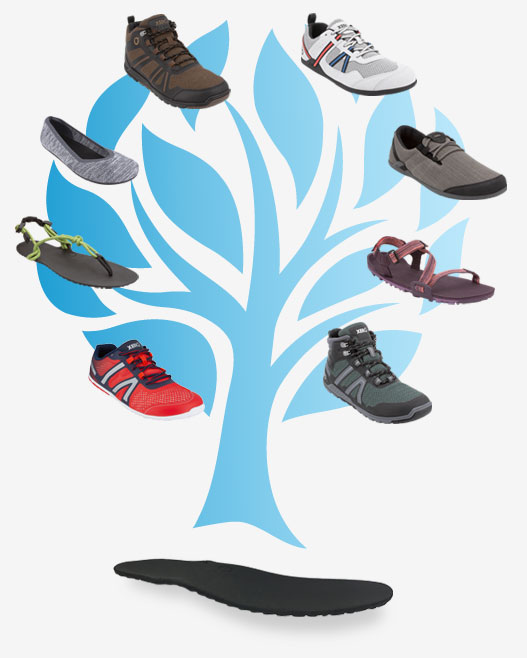Introduction
Barefoot shoes have gained popularity in recent years as a way to reconnect with our natural movement and promote better foot health. But are barefoot shoes suitable for everyone? In this comprehensive guide, we will explore the benefits and drawbacks of barefoot shoes, address common questions and concerns, and provide tips for choosing the right pair. Whether you're an experienced barefooter or just curious about this footwear trend, this guide will help you make an informed decision.
1. Are Barefoot Shoes Suitable for Everyone?
Contrary to popular belief, barefoot shoes are not suitable for everyone. While they offer several benefits, such as improved balance, strength, and flexibility, they may not be appropriate for individuals with certain foot conditions or those who require additional support. It is always recommended to consult with a medical professional before transitioning to barefoot shoes, especially if you have pre-existing foot issues.
2. Can I Wear Barefoot Shoes in Cold Weather?
Yes, you can wear barefoot shoes in cold weather. However, it's important to note that most barefoot shoes are designed with minimal insulation and protection from the elements. If you live in an area with harsh winters, you may want to consider wearing thicker socks or using shoe covers to keep your feet warm.
3. How Long Do Barefoot Shoes Last?
The lifespan of barefoot shoes depends on various factors such as usage frequency, terrain, and maintenance. On average, a well-made pair of barefoot shoes can last anywhere from six months to two years. It's important to inspect your shoes regularly for signs of wear and tear and replace them when necessary to ensure optimal performance.
4. Can I Wear Socks with Barefoot Shoes?
While some individuals prefer to wear socks with their barefoot shoes for added warmth or comfort, it's important to choose socks that are thin and do not interfere with the natural movement of the foot. Look for socks specifically designed for use with barefoot shoes, as they are often made from moisture-wicking materials and have a minimal design.
5. Are Barefoot Shoes Waterproof?
Most barefoot shoes are not waterproof due to their minimalist design. However, some brands offer water-resistant options that provide a certain level of protection against light rain or splashes. If you anticipate being in wet conditions frequently, it's recommended to invest in a pair of waterproof or water-resistant barefoot shoes.
6. Do Barefoot Shoes Require Special Care?
Barefoot shoes generally require minimal care compared to traditional footwear. To prolong their lifespan, it's important to clean them regularly using mild soap and water, allow them to air dry completely, and store them in a cool and dry place away from direct sunlight. Avoid using harsh chemicals or abrasives as they can damage the materials.
7. Can I Use Barefoot Shoes for Sports Other Than Running?
Yes, barefoot shoes can be used for various sports and activities other than running. Many athletes and fitness enthusiasts have successfully incorporated barefoot shoes into their training routines for activities such as weightlifting, yoga, hiking, and cross-training. It's important to choose a pair of barefoot shoes that are specifically designed for your intended activity to ensure optimal performance and support.
8. Are Barefoot Shoes Good for Children?
Barefoot shoes can be beneficial for children as they promote natural foot development and strengthen the muscles in their feet and legs. However, it's important to choose age-appropriate barefoot shoes that provide adequate protection and support for growing feet. Consult with a pediatrician or podiatrist before introducing your child to barefoot shoes.
9. Can Barefoot Shoes Help with Foot Problems?
Barefoot shoes have been found to be helpful for individuals with certain foot problems such as flat feet, plantar fasciitis, and bunions. The natural movement and increased sensory feedback provided by barefoot shoes can help improve foot biomechanics and alleviate symptoms in some cases. However, it's important to consult with a healthcare professional before using barefoot shoes as a treatment option.
10. How Do I Choose the Right Size of Barefoot Shoes?
Choosing the right size of barefoot shoes is crucial for optimal comfort and performance. Start by measuring your feet using a ruler or tape measure and refer to the manufacturer's size chart for accurate sizing information. Keep in mind that barefoot shoes often have a wider toe box compared to traditional footwear, allowing for natural toe splay. It's recommended to try on multiple sizes and models to find the best fit for your feet.
FAQs
Q1: Are barefoot shoes suitable for everyone? A1: No, barefoot shoes may not be suitable for individuals with certain foot conditions or those who require additional support. Extra resources It's best to consult with a medical professional before transitioning to barefoot shoes.
Q2: Can I wear barefoot shoes in cold weather? A2: Yes, you can wear barefoot shoes in cold weather, but it's important to take extra precautions to keep your feet warm.
Q3: How long do barefoot shoes last? A3: The lifespan of barefoot shoes varies depending on usage and maintenance but generally ranges from six months to two years.
Q4: Can I wear socks with barefoot shoes? A4: While it is possible to wear socks with barefoot shoes, it's recommended to choose thin socks that do not interfere with natural foot movement.
Q5: Are barefoot shoes waterproof? A5: Most barefoot shoes are not waterproof, but water-resistant options are available from some brands.
Q6: Do barefoot shoes require special care? A6: Barefoot shoes require minimal care. Regular cleaning and proper storage can help prolong their lifespan.

Conclusion
Barefoot shoes offer a unique alternative to traditional footwear, promoting natural foot movement and improved foot health. While they may not be suitable for everyone, many individuals have found success and benefits from incorporating barefoot shoes into their daily lives. By considering your specific needs, consulting with professionals, and choosing the right pair, you can experience the advantages of barefoot shoes while minimizing any potential drawbacks. Remember to prioritize comfort, fit, and proper maintenance to ensure a positive barefoot shoe experience.